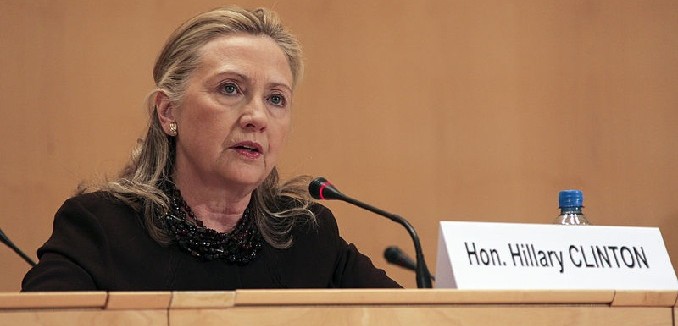U.S. Officials: Resolution Endangers “Prospects of a Durable Peace”
U.S. officials are slamming a vote by the United Nations General Assembly to upgrade the Palestinian status at the United Nations to that of a non-member observer state.
U.S. Secretary of State Clinton criticized the resolution – which passed with 138 votes in favor, 9 votes opposed, and 41 abstentions – as “unfortunate and counterproductive… plac[ing] further obstacles in the path of peace.” In what analysts described as a particularly tough speech, U.S. Ambassador Rice insisted that the unilateral Palestinian gambit will cause “the prospects of a durable peace [to] recede.” Palestinian officials had pursued the diplomatic move in defiance of President Obama’s request to put aside the campaign, which has damaged American diplomacy globally.
Unilaterally seeking to declare a state in the West Bank violates the Palestinians’ Oslo Accord commitments to refrain from “steps that will change the status of the West Bank… pending the outcome of the permanent status negotiations.” High-ranking Palestinian officials have boasted that the resolution will mark the formal end of the decades-old Palestinian peace process with Israel.
Vote “Does Not Establish That Palestine Is A State”
Rice’s speech also emphasized that the resolution does not “create a state where none indeed exists or change the reality on the ground” and, more explicitly, “does not establish that Palestine is a state.”
As a matter of law the UNGA vote is not binding, nor is the UNGA empowered to either create states or accept full UN members. The latter authority is reserved to the UN Security Council, which last year rejected a Palestinian application for admission as a full UN member, while establishing the former would require the Palestinians to meet requirements for institution building and sovereignty codified in the 1933 Montevideo Convention.
Broad Palestinian failures to establish robust institutions have long plagued efforts to achieve statehood. The Fatah-controlled Palestinian Authority has failed to secure political legitimacy, with Palestinian President Mahmoud Abbas in the eighth year of a four-year term. It has failed to achieve economic stability, with hopes of a recovery described as a “fleeting mirage.” It has failed to establish sovereignty over the territory it declares as Palestinian, with different and opposing Fatah and Hamas factions in control of the West Bank and Gaza Strip respectively. And it has failed to stem the activities of smaller military forces and terror groups in its claimed territories.
The United States, Israel, Czech Republic, Canada, Panama, Marshall Island, Micronesia, Palau and Nauru voted against the resolution. UN watchdog groups noted that though winning the vote, the Palestinians fell short of the amount of yes votes many had been expecting. By way of comparison, the final tally provided the Palestinians with 38 fewer votes for symbolic non-member statehood status than “genocidal Sudan” had acquired when the country successfully ascended to the UN’s top human rights panel.




